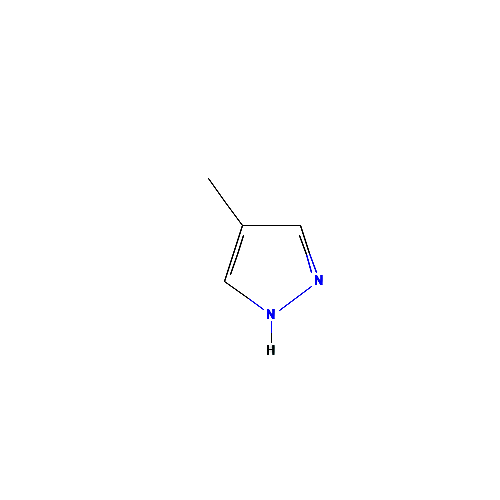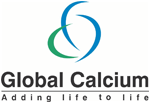

Fomepizole IP
- Product Name : Fomepizole
- CAS : 7554-65-6
- Molecular Formula : C4H6N2
- Molecular Weight : 82.10 g/mol
- Pharmaceutical Grade : IP
- Therapeutic Category : Antidote

Global Calcium is one of the leading manufacturers and exporters of Fomepizole CAS no. 7554-65-6, API, (Active Pharmaceutical Ingredient). We support the customers with exhaustive documentation. As a USDMF & EU-GMP certified global company and an established hallmark for pharmaceutical standards, Global Calcium has stood the test of time since its inception in 1979.
As manufacturer of Fomepizole we hereby state the following facts about the drug:
Background: Fomepizole is used as an antidote in confirmed or suspected methanol or ethylene glycol poisoning. Fomepizole is a competitive inhibitor of alcohol dehydrogenase, the enzyme that catalyzes the initial steps in the metabolism of ethylene glycol and methanol to their toxic metabolites.
Indication: Antizol is indicated as an antidote for ethylene glycol (such as antifreeze) or methanol poisoning, or for use in suspected ethylene glycol or methanol ingestion, either alone or in combination with hemodialysis
Pharmacodynamics: Fomepizole is a competitive inhibitor of alcohol dehydrogenase, the enzyme that catalyzes the initial steps in the metabolism of ethylene glycol and methanol to their toxic metabolites. Ethylene glycol is first metabolized to glycolaldehyde which then undergoes further oxidation to glycolate, glyoxylate, and oxalate. Glycolate and oxalate are primarily responsible for metabolic acidosis and renal damage seen in ethylene glycol toxicity. Methanol is first metabolized to formaldehyde and then undergoes subsequent oxidation via formaldehyde dehydrogenase to become formic acid. It is formic acid that is primarily responsible for metabolic acidosis and visual disturbances that are associated with methanol poisoning.
Mechanism of action: Antizol (fomepizole) is a competitive inhibitor of alcohol dehydrogenase. Alcohol dehydrogenase catalyzes the oxidation of ethanol to acetaldehyde. Alcohol dehydrogenase also catalyzes the initial steps in the metabolism of ethylene glycol and methanol to their toxic metabolites.
Pharmacokinetics: The plasma half-life of Antizol (fomepizole) varies with dose, even in patients with normal renal function, and has not been calculated.
Distribution: After intravenous infusion, Antizol (fomepizole) rapidly distributes to total body water. The volume of distribution is between 0.6 L/kg and 1.02 L/kg.
Metabolism: In healthy volunteers, only 1-3.5% of the administered dose of Antizol (fomepizole) (7-20 mg/kg oral and IV) was excreted unchanged in the urine, indicating that metabolism is the major route of elimination. In humans, the primary metabolite of Antizol (fomepizole) is 4-carboxypyrazole (approximately 80-85% of the administered dose), which is excreted in the urine. Other metabolites of Antizol (fomepizole) observed in the urine are 4-hydroxymethylpyrazole and the N-glucuronide conjugates of 4-carboxypyrazole and 4-hydroxymethylpyrazole.
Excretion: The elimination of Antizol (fomepizole) is best characterized by Michaelis-Menten kinetics after acute doses, with saturable elimination occurring at therapeutic blood concentrations [100-300 µmol/L, 8.2-24.6 mg/L].
With multiple doses, Antizol (fomepizole) rapidly induces its own metabolism via the cytochrome P450 mixed-function oxidase system, which produces a significant increase in the elimination rate after about 30-40 hours. After enzyme induction, elimination follows first-order kinetics.
Global Calcium is a leading manufacturer of this drug. We manufacture this pharmaceutical drug and make it available to domestic and overseas market
